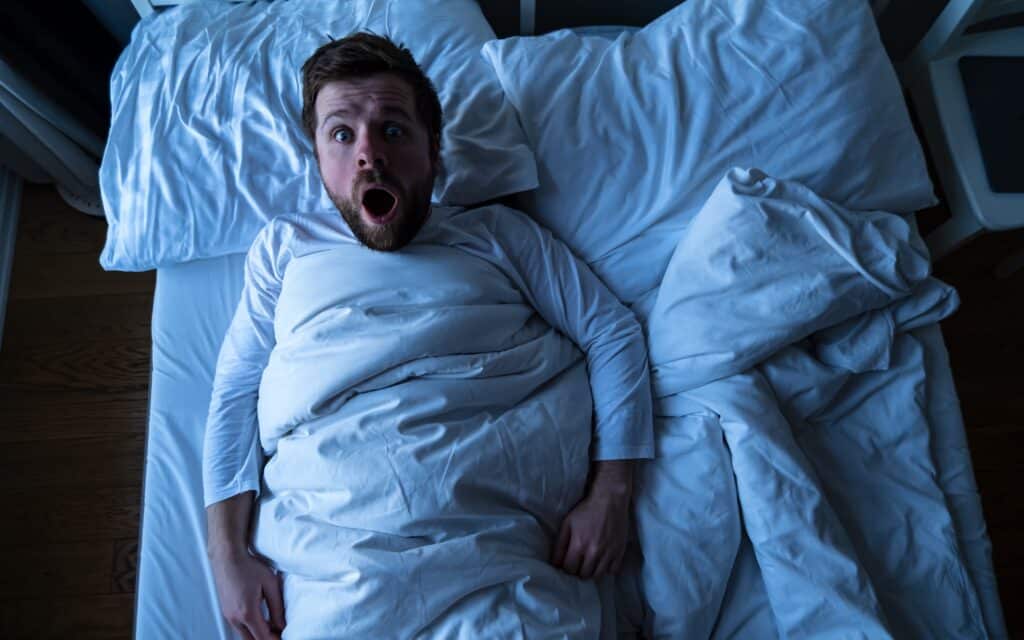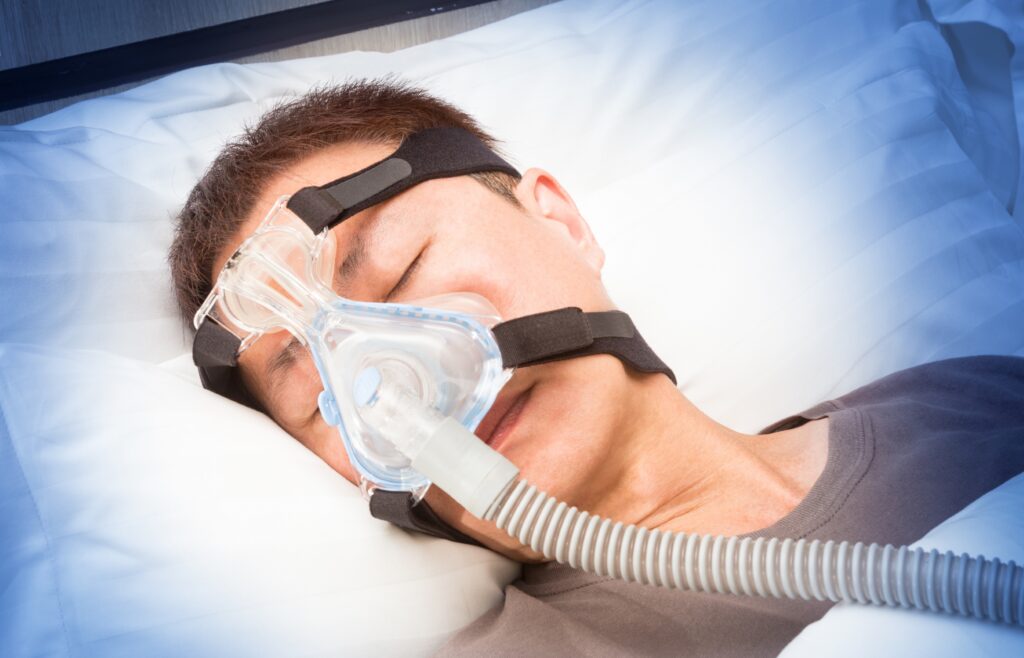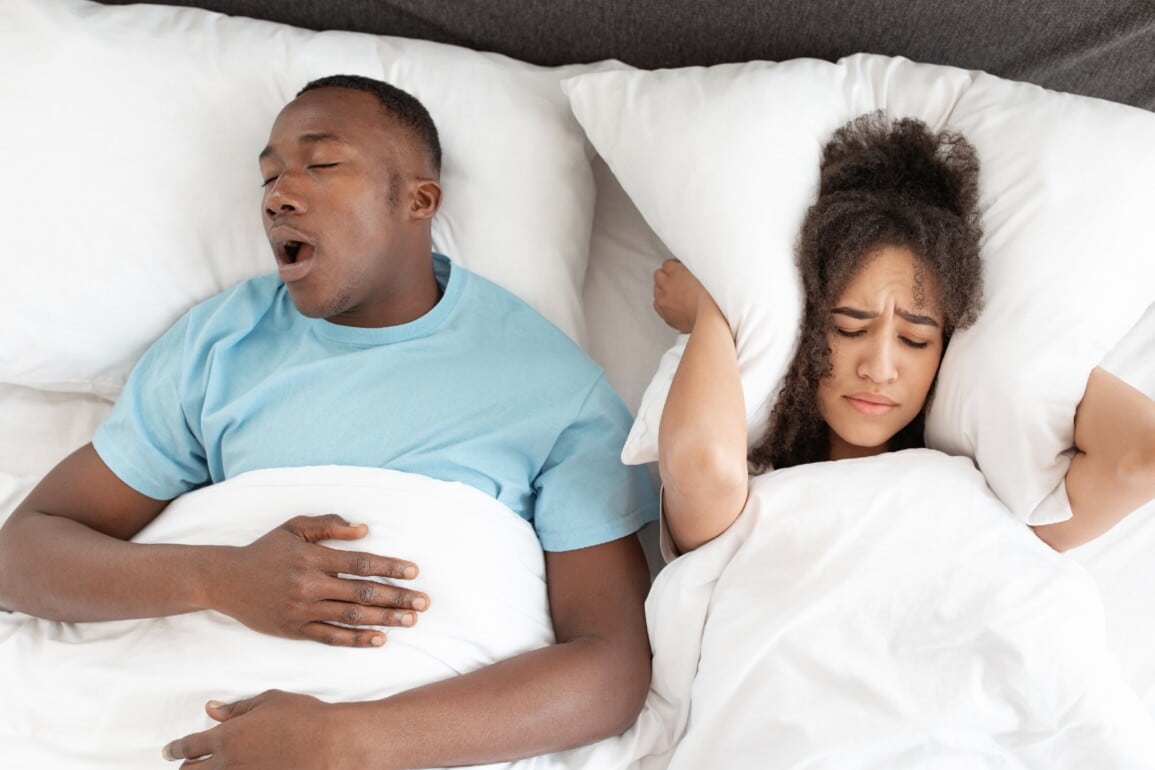Have you ever heard of sleep apnea nightmares?
We’re not referring to the cold sweat you might wake up in after a dream about being unable to breathe. Instead, we’re discussing the idea sleep apnea could be enough to increase your risk of having nightmares.
Increasingly, studies are starting to show certain kinds of sleep apnea may have more of an influence on our sleep patterns than previously assumed.
Specifically, sleep apnea and dreams may have a connection, particularly when talking about obstructive sleep apnea.
Today, we’re going to look at some of the studies and insights surrounding sleep apnea and nightmares, to determine how people suffering from sleep apnea can breathe easier at night. Let’s dive in.
Sleep apnea dreams: Obstructive sleep apnea
Insomnia and trouble sleeping are common problems around the globe because there are so many factors, which can affect your quality of sleep.
For some people, the cause of their sleep problem is simple enough – such as anxiety or high levels of stress before bed.
For others, sleep disorders may be linked to more complex, genetic or physical issues, like restless leg syndrome, or obstructive sleep apnea.
Obstructive sleep apnea is one of the more common kinds of sleep apnea – a condition which makes it difficult for you to breathe naturally as you snooze.
Sleep apnea can be a mild problem, or a significant issue, depending on how severe your condition might be. Obstructive sleep apnea happens when the throat muscles relax too much, blocking your airways during the night.
Obstructive sleep apnea is linked back to everything from obesity, to mental health issues. This kind of apnea could also be the one most likely to cause issues with your dreaming.
This is because your body’s supply of oxygen, and access to air can affect the way your brain works.

Sleep apnea, dreams, suffocation and stress
Obstructive sleep apnea, or OSA is an extremely common condition, particularly in the United States, where it affects up to 9% of all adults.
When your airways are obstructed, you’re unable to get the right amount of oxygen into your lungs, and therefore your blood, as you rest. Usually, obstructive sleep apnea will cause you to wake up, so you can reset your breathing.
However, there are times when you may not wake up from OSA immediately. Instead, you might spend more time tossing back and forth, snoring, and struggling to fall completely asleep.
So, where do sleep apnea nightmares begin?
First of all, it’s worth noting that any issue causing bad sleep can increase your risk of nightmares. Sleep apnea and dreaming may be linked based on the stress sleep deprivation causes.
When you can’t sleep well because you’re waking up through the night, your brain can’t function as effectively to deal with things like emotions.
This means you’re more likely to go to bed in a negative mood, and experience nightmares based on your darker thoughts.
Patients with obstructive sleep apnea experience something called desaturation during fragmented sleeping sessions. Their level of oxygen declines.
Many report dreams of suffocation or drowning. Sleep apnea nightmares are also frequently accompanied by fear and palpitations.
Lower blood oxygen levels are frequently connected to nightmares. When your brain isn’t getting enough air to function properly, it’s not working as it’s supposed to when processing thoughts and memories. This increases the risk of vivid, disturbing dreams.
Sleep apnea and dreaming: The reality
Nightmares aren’t the only dream-based side effect to come from sleep apnea.
Studies indicate only around 43.2% of people with sleep apnea remember their dreams, compared to around 71.4% of people on average. This doesn’t mean you’re not having dreams.
Rather, experts believe sleep apnea disrupts the period of REM sleep responsible for dreaming. If you’re repeatedly woken from sleep with your sleep apnea, you may find it harder to recall the creams you have.
Additionally, if you do remember your dreams, they’re likely to have a more nightmarish quality. This is because the brain actively attempts to make sense of what’s happening to the body and individual during dreaming.
If your body senses a lack of oxygen, it might convey this in your dreams through images of drowning, or feelings of suffocation.
If you’ve ever been sleeping when you’ve desperately needed a trip to the bathroom and noticed how frequently you visit the bathroom in your dream, you’ll know how this connection works.
Aside from creating a more emotional dreaming experience for people, sleep apnea can also have long-term impacts on your mental health after waking.
Daytime anxiety and depression are often more common in people who have sleep apnea, perhaps in part due to the presence of disturbing dreams.
Though there’s no guarantee sleep apnea will automatically lead to nightmares, patients frequently report higher instances of nightmares when their sleep apnea condition is more severe.

Sleep apnea and nightmares: FAQ
Can low oxygen cause nightmares?
Several studies have linked low blood oxygen to night terrors and nightmares. During sleep apnea, your brain senses the reduced oxygen, and recognizes the threat you’re experiencing. This threat often comes through in nightmares.
Does sleep apnea cause vivid dreams?
Sleep apnea can sometimes reduce the number of dreams you have at night, and the number of dreams you’re able to remember. However, you might find the dreams you do have are more vivid, because they’re enhanced by your brain’s response to a potential threat.
Why do I stop breathing in my dreams?
If you haven’t been diagnosed with sleep apnea, but you regularly have dreams about being suffocated, wake up feeling exhausted, or snore frequently through the night, this could be a sign you need to be checked out. Regular dreams about suffocation can be a common indicator of sleep apnea.
Do you dream more with CPAP?
Some people believe they dream more with CPAP treatment for sleep apnea. This may be because it’s possible to spend more comfortable time in REM sleep when you’re using a CPAP machine.
What kind of sleep apnea causes nightmares?
The most common form of sleep apnea associated with bad dreams and nightmares is Obstructive Sleep Apnea, or OSA. This is the sleep apnea which currently has the most research into both trouble breathing and bad dreams.
Can you fix sleep apnea nightmares?
Sleep apnea can be a worrying condition, regardless of whether you’re likely to have more nightmares or not. Unfortunately, it’s difficult to find a solution to this problem until you’ve determined the cause of your problem is in fact an issue with breathing.
The first thing you should do if you’re having regular dreams about suffocating, or your partner says you frequently snore at night, is to seek a doctor’s opinion.
There are various symptoms of sleep apnea you might recognize, including waking up during the night and feeling more exhausted during the day. After your doctor screens you for sleep apnea, they will be able to offer advice on treatment options.
Sleep apnea treatment will usually include things like changing your sleeping position, working on your sleep hygiene, avoiding certain medications and updating your lifestyle.
For instance, losing weight can help with sleep apnea. You could also be asked to use a CPAP machine to open your airways while you’re sleeping.
The good news is CPAP machines are proven to have a positive impact on all sleep apnea symptoms, including nightmares. One study found a significant decrease in the frequency of nightmares per week for anyone using a CPAP machine.
Siestio. Sleep Matters.
Medical disclaimer
You must not rely on the information provided on our website as an alternative to medical advice from your doctor or other healthcare professionals. For more information read our full disclaimer here.







